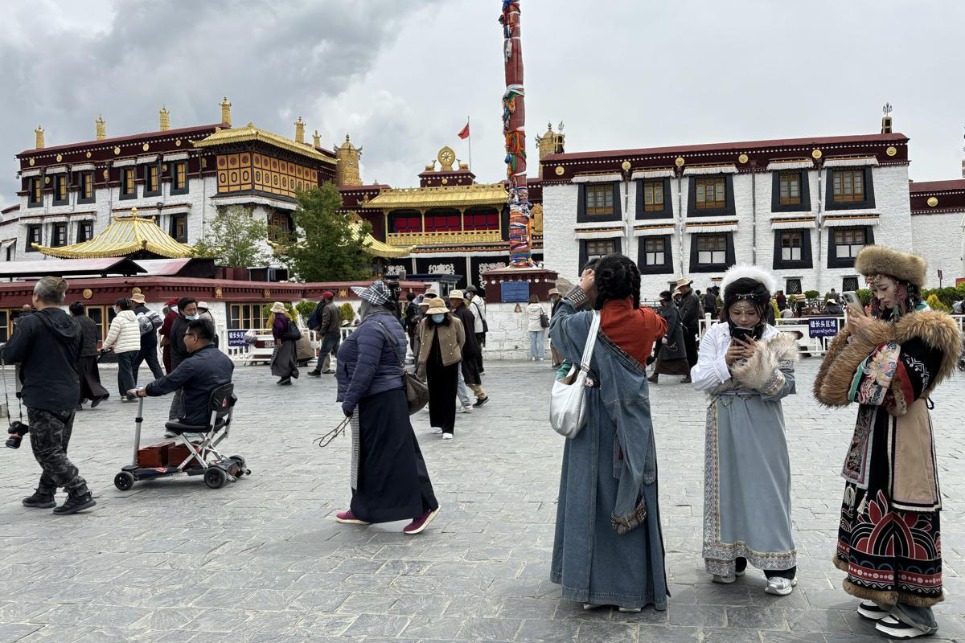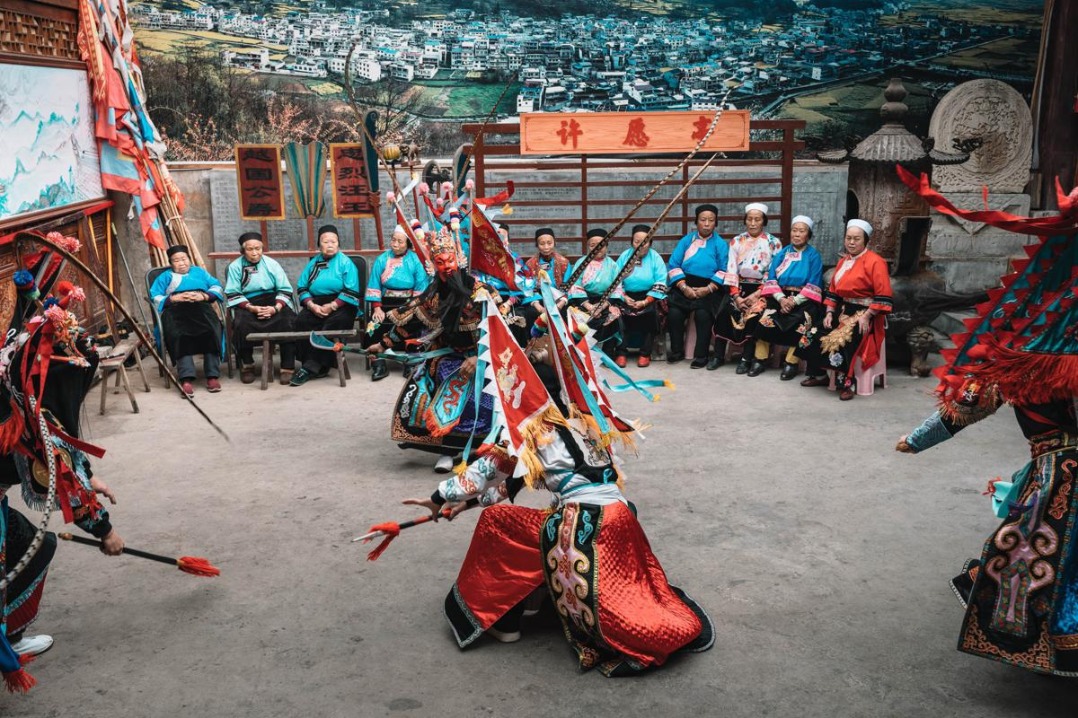Grassroots workers welcome rural prosperity goal


Rural residents and grassroots representatives across China have voiced strong expectations for agricultural modernization and comprehensive rural vitalization in the coming years. This follows the release of the Recommendations of the Central Committee of the Communist Party of China for Formulating the 15th Five-Year Plan for National Economic and Social Development.
The recommendations outline the vision of accelerating agricultural and rural modernization as one of the priorities during the 15th Five-Year Plan period (2026-30). They call for consolidating poverty alleviation achievements, improving living conditions in rural areas, and making steady progress toward turning China into a strong agricultural country.
The emphasis on agricultural innovation and rural prosperity resonates deeply with those working on the front line of rural vitalization.
Farmers and agricultural cooperatives are enthusiastic about the push for smart equipment suitable for hilly and mountainous areas, as well as advanced mechanization in all farming procedures.
Li Zhonghua, head of a farming machinery cooperative in Changtu county, Liaoning province, said the document brings "fresh passion and vitality" to front-line farmers.
"According to the recommendations, smart agriculture will be supported, greatly freeing our hands and boosting productivity," Li said.
"My goal in the coming years is to build a fully automated smart farm, where unmanned machinery performs multiple tasks from sowing to harvesting. That would greatly ease labor intensity and make farming an attractive career for more people," he added.
Wu Yuhui, a member of the lychee industry association in Guangdong province, also noted the potential of smart farming technologies such as drones and intelligent irrigation systems to raise productivity and efficiency.
"With the support of intelligent facilities and digital marketing platforms, Chinese agricultural products can reach global consumers faster," Wu said.
In recent years, agriculture in China has undergone remarkable change, Wu said. "It's encouraging to see agriculture placed as a national development priority and a symbol of modernization."
As the manager of a lychee company in Huizhou, Wu said he expects more support for strengthening the core competitiveness of the agricultural sector, particularly the innovation of seed varieties.
"In the lychee industry, for example, improving seed varieties and brand recognition will help enhance our competitiveness," Wu said, adding that his enterprise plans to prioritize variety development and invest in building agricultural brands in the next few years.
Deng Xudong, a Party committee member of Qingxi village in Yiyang, Hunan province, said the rural vitalization agenda mentioned in the document is an opportunity to bridge the urban-rural divide.
After returning to his hometown to work on rural development in his early 30s, he has been leading efforts to integrate local culture with tourism.
Known as the setting of writer Zhou Libo's novel Great Change in the Hills and Countryside, Qingxi village is turning its literary heritage into a driver for tourism and youth entrepreneurship, Deng said.
"We hope more education and healthcare resources can flow into rural areas to support those who return home to start businesses," he said.
By combining cultural resources with new media, Deng and his team are telling stories of rural transformation through short videos and livestreaming. The village also plans to develop literature-themed study tours and festivals to attract visitors nationwide.
In addition, local officials said they will keep boosting farmers' income through developing distinctive rural industries, as highlighted in the recommendations.
Zhou Kunming, Party secretary of Haojia township in Dongying, Shandong province, said the township is working to enhance small-scale projects such as village-level agroecology and specialty food processing.
"We aim to extend industrial chains to villages and households, effectively boosting collective income and vitalizing the countryside," Zhou said.
- Grassroots workers welcome rural prosperity goal
- 161 nominations for Hong Kong LegCo election deemed valid
- Decks cleared for launch of ZQ 3 rocket
- Prosecutors target crimes related to food safety
- China's 15th five-year plan sends out positive signal: envoys in China
- New variety of tree-like pepper grown in Hunan





































